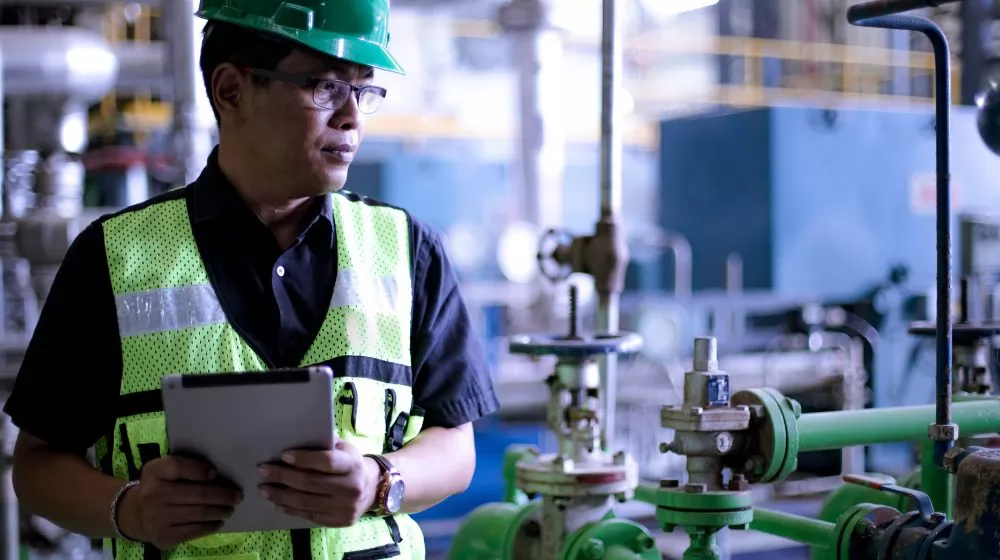
Table of contents:
In the complex landscape of global manufacturing, understanding the intricacies of China factory inspection services is crucial for businesses seeking to maintain product quality and uphold supply chain standards. Navigating the vast manufacturing environment in China requires a comprehensive knowledge of the factors that contribute to effective factory inspections. In this exploration, we delve into the key considerations and insights that businesses need to be aware of when engaging in China factory inspection services.
Overview of China Factory Inspection Services
China Factory Inspection Services play a crucial role in ensuring product quality, compliance with regulations, and adherence to standards in the manufacturing industry. These services are often conducted by third-party inspection agencies to provide an unbiased evaluation of a factory's processes and output.
Types of Factory Inspection Services
Initial Production Check (IPC):
Purpose: Conducted at the early stages of production to verify adherence to agreed specifications and procedures.
Activities: Inspection of raw materials, initial production processes, and the confirmation of production schedule alignment with the agreed timeline.
Benefits: Early detection of potential issues, ensuring corrective actions are implemented promptly.
During Production Inspection (DPI):
Purpose: Monitoring the quality of products during manufacturing, involving random sampling for testing and evaluation.
Activities: In-process quality checks, product sampling, and evaluation of production efficiency.
Benefits: Identifying and addressing issues during production to prevent defects in the final product.
Pre-Shipment Inspection (PSI):
Purpose: Final inspection before shipment to confirm that products meet all requirements and are in optimal condition for shipping.
Activities: Comprehensive examination of finished goods, verification of quantity, packaging, and overall quality.
Benefits: Ensuring that only products meeting specified standards are shipped, reducing the risk of receiving defective goods.
Container Loading Check (CLC):
Purpose: Verification that products are properly packaged and loaded into containers to prevent damage during transportation.
Activities: Inspection of packaging integrity, loading procedures, and securing goods for safe transportation.
Benefits: Minimizing the risk of damage during transit, ensuring products reach their destination in good condition.
Production Monitoring:
Purpose: Continuous monitoring of manufacturing processes and quality management systems to ensure consistent compliance with standards.
Activities: Regular checks throughout the production cycle, including process audits and quality control measures.
Benefits: Proactive identification of deviations from standards, enabling timely corrective actions and maintaining product consistency.
Social Compliance Audits:
Purpose: Assessment of the manufacturer's adherence to labor laws, social responsibility standards, and ethical practices.
Activities: Evaluation of working conditions, employee treatment, and overall adherence to social and ethical standards.
Benefits: Ensuring ethical and responsible business practices, promoting fair labor standards, and minimizing reputational risks for the client.

Regulatory Framework
1. Laws and Regulations:
Definition: Rules established by authorities.
Purpose: Set standards for ethical conduct and lawful practices.
2. Regulatory Agencies:
Definition: Government bodies responsible for enforcing rules.
Purpose: Oversee compliance, investigate violations, and ensure fair practices.
3. Compliance Standards:
Definition: Guidelines specifying acceptable practices.
Purpose: Ensure uniformity, adherence to quality, and safety measures.
4. Consumer Protection:
Definition: Legal measures safeguarding consumer rights.
Purpose: Prevent fraud, ensure fair treatment, and provide avenues for dispute resolution.
5. Health and Safety Regulations:
Definition: Rules governing workplace safety.
Purpose: Mitigate risks, prevent accidents, and protect the well-being of workers.
6. Environmental Regulations:
Definition: Policies addressing the impact of business on the environment.
Purpose: Encourage sustainable practices, reduce pollution, and promote eco-friendly operations.
7. Financial Regulations:
Definition: Guidelines governing financial markets and institutions.
Purpose: Maintain stability, protect investors, and ensure fair and transparent financial practices.
8. Data Protection and Privacy Laws:
Definition: Regulations governing the collection and use of personal data.
Purpose: Safeguard individuals' privacy, promote responsible data handling, and prevent misuse.
9. Anti-Trust and Competition Laws:
Definition: Rules preventing anti-competitive practices.
Purpose: Encourage fair competition, prevent monopolies, and ensure market diversity.
10. Enforcement Mechanisms:
- Definition: Processes ensuring compliance with regulations.
- Purpose: Investigate, penalize, and rectify instances of non-compliance, fostering accountability and deterrence.
Benefits of Factory Inspection Services
Engaging China factory inspection services yields a multitude of advantages for businesses:
Minimized Defects and Rework: Through early identification and rectification of quality issues in the production process, inspections play a crucial role in reducing the occurrence of defects and the subsequent need for costly rework.
Elevated Product Quality: Inspections act as a quality assurance measure, guaranteeing that products adhere to specified standards. This significantly diminishes the likelihood of customer dissatisfaction and minimizes the risk of product recalls.
Optimized Supply Chain Management: By providing valuable insights into the manufacturer's capabilities and quality control measures, inspections contribute to better supply chain management. This enhanced visibility enables businesses to make informed decisions, leading to effective risk mitigation.
Safeguarding Brand Reputation: Consistent product quality, ensured through inspections, becomes a shield for the company's brand reputation. Maintaining high standards helps in building and preserving customer loyalty, ultimately protecting the brand image.
Regulatory Compliance Assurance: Inspections serve as a tool for businesses to ensure adherence to relevant regulations and industry standards. This proactive approach not only helps in avoiding legal issues but also reinforces the company's commitment to ethical and lawful practices.

Choosing a Factory Inspection Service Provider
When choosing a China factory inspection service provider, it is crucial to take into account the following key factors:
Experience and Expertise: Opt for a provider with a proven track record of conducting inspections within the specific industry and product category relevant to your business. A wealth of experience indicates a deeper understanding of potential challenges and quality standards.
Global Presence: Consider a service provider with a well-established network of inspectors in China. This ensures comprehensive coverage and timely responses to your inspection needs, especially in a dynamic manufacturing environment.
Communication and Reporting: Verify that the chosen provider emphasizes clear and effective communication. A transparent reporting system, providing detailed and comprehensible inspection reports, is essential for you to make informed decisions based on the findings.
Cost-Effectiveness: Strive for a balance between the cost of the inspection services and the value they bring to your business. While cost is a significant factor, it should be weighed against the benefits of maintaining product quality and supply chain integrity.
Accreditation and Certification: Ensure that the inspection service provider holds accreditation from recognized organizations and adheres to international standards. This demonstrates their commitment to professional practices and adds credibility to their inspection processes.
By meticulously evaluating these factors, businesses can make informed decisions and select a reputable China factory inspection service provider. This strategic choice not only safeguards product quality but also contributes to the overall integrity of the supply chain.
Who Can Do China Factory Inspection Services?
Numerous companies and organizations provide China factory inspection services, catering to businesses across various sizes and industries. Here are further details about some prominent players in this domain:
Supplyia QC International: Established in 1984, Supplyia QC International is a global quality assurance firm specializing in factory audits, quality management system audits, social compliance audits, and product inspection services in China. Their extensive network of quality control engineers and auditors covers major cities and industrial centers in China.
China Inspection Agency: A leading provider, China Inspection Agency offers a broad spectrum of inspection solutions, including initial production checks, during production inspections, pre-shipment inspections, container loading checks, production monitoring, and social compliance audits. They have a proven track record supporting businesses in electronics, toys, garments, machinery, and chemicals.
QI Certification: QI Certification provides comprehensive factory inspection and certification services, encompassing product quality, social responsibility, and environmental compliance. Their team of experienced inspectors and auditors is well-versed in Chinese regulations and industry standards.
InspecTech: A trusted provider of quality control and inspection services, InspecTech offers services like initial inspection, production monitoring, pre-shipment verification, and social compliance audits for manufacturers in China. They emphasize ethical sourcing and fair labor practices.
TUV Rheinland: As a global leader in testing, inspection, and certification services, TUV Rheinland offers comprehensive China factory inspection services, covering product quality, social responsibility, and environmental compliance. They maintain a network of experienced inspectors and auditors in China and globally.
SGS: Another global leader in quality assurance and testing services, SGS provides a wide range of China factory inspection services, including initial production checks, during production inspections, pre-shipment inspections, and social compliance audits. Their vast network of inspectors and auditors spans worldwide.
Intertek: Known for rigorous quality assurance standards, Intertek offers China factory inspection services for industries such as consumer goods, electronics, manufacturing, and pharmaceuticals. They boast a global network of experts with extensive experience in inspection and testing.
Quacn Quality Control: Specializing in China factory inspection services, Quacn Quality Control offers pre-shipment inspections, container loading checks, and production monitoring. They prioritize quality assurance and efficient supply chain management.
CCIC Inspection: A Chinese inspection and certification organization, CCIC Inspection provides a comprehensive suite of services for China factories, including initial production checks, during production inspections, pre-shipment inspections, and social compliance audits. They are well-versed in Chinese regulations and standards.
CMC Global Services: Offering a comprehensive range of quality control and inspection services for China factories, CMC Global Services covers product quality, social responsibility, and environmental compliance. Their experienced inspectors and auditors focus on risk mitigation and supply chain optimization.
These examples represent a fraction of the companies providing China factory inspection services. Businesses should conduct thorough evaluations of the experience, expertise, and reputation of potential providers to choose the one aligning best with their specific needs and requirements.

Common Challenges in China Factory Inspections
China factory inspections, while essential for ensuring product quality and supply chain integrity, come with their own set of challenges. Some common challenges include:
Language Barriers: Effective communication can be hindered by language differences between inspectors and factory personnel. Misunderstandings may arise, potentially impacting the accuracy of information conveyed during the inspection.
Cultural Differences: Cultural nuances may affect the interpretation of quality standards and expectations. Different approaches to business practices and quality management can lead to discrepancies between what is expected and what is implemented.
Logistical Issues: Navigating the logistics of scheduling inspections, coordinating with factories, and ensuring timely visits can be challenging. Factors like travel arrangements and factory location may introduce complications.
Hidden Subcontracting: Some factories may engage in subcontracting without disclosing it, leading to quality control issues. Inspectors may struggle to identify hidden subcontractors during routine inspections.
Pressure to Meet Deadlines: Factories might prioritize meeting production deadlines over quality standards. Inspectors may face resistance when highlighting quality concerns that could potentially delay shipments.
Documentation Accuracy: Ensuring the accuracy and completeness of factory documentation, including production records and quality control procedures, can be challenging. Factories may present misleading or incomplete information.
Constantly Evolving Supply Chains: The dynamic nature of supply chains in China, with frequent changes in suppliers and manufacturing locations, poses a challenge for consistent and reliable inspections. Keeping up with these changes requires agility.
Environmental and Ethical Concerns: Compliance with environmental and ethical standards can be a challenge. Factories may not always adhere to regulations related to waste disposal, worker conditions, and ethical sourcing.
Technology and Data Security: With the increasing use of digital systems for inspections and data reporting, concerns about data security and intellectual property protection may arise. Ensuring the confidentiality of inspection findings is crucial.
Quality Variability: China has a vast manufacturing landscape with a wide range of factories, from highly advanced to less sophisticated. Ensuring consistent quality across diverse manufacturing environments can be a challenge.
Political and Regulatory Changes: Changes in political or regulatory landscapes can impact the inspection process. New regulations or shifts in government policies may necessitate adjustments to inspection protocols.
Remote Management Challenges: For businesses overseeing operations from a distance, managing and coordinating inspections remotely can be complex. This challenge has become more pronounced with the global shift toward remote work and travel restrictions.
Addressing these challenges requires a combination of effective communication, cultural awareness, robust inspection protocols, and adaptability to the dynamic nature of manufacturing in China. Companies often work closely with experienced inspection service providers to navigate and mitigate these challenges effectively.
How Much for China Factory Inspection Services?
The cost of China factory inspection services can vary depending on several factors, including the type of inspection, the size of the order, the complexity of the product, and the location of the factory. However, as a general rule of thumb, you can expect to pay between USD 180 and USD 300 per man-day for product inspection services in China.
Addressing Potential Resistance
While the possibility exists that the supplier may remove the technician if substantial problems are identified during an inspection, this scenario can actually be advantageous for the importer. By detecting issues early in the production process and capturing photographic evidence, the importer gains a proactive stance in addressing quality concerns. This evidence serves as a valuable tool during discussions with the supplier, enabling the importer to engage in constructive conversations aimed at formulating effective corrective measures. Rather than viewing the potential ejection of the technician as a setback, the importer can leverage this situation to foster transparency, collaboration, and ultimately, to enhance the overall quality of the manufactured goods.

Conclusion
The world of factory inspection services in China is multifaceted and presents businesses with a variety of challenges and opportunities. With the right knowledge, companies can make informed decisions, select reputable service providers, and ensure the integrity of their supply chains. As the manufacturing landscape continues to evolve, staying up to date on the complexities of factory inspections in China remains an important aspect of maintaining product quality, fostering collaboration with suppliers, and safeguarding corporate reputations around the world. If you need more knowledge, please contact Coolo to answer your questions.



